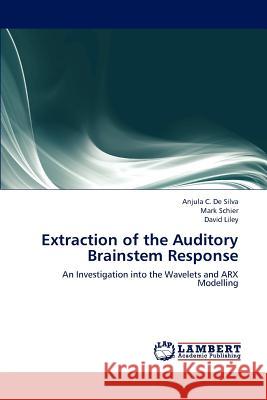Extraction of the Auditory Brainstem Response » książka
Extraction of the Auditory Brainstem Response
ISBN-13: 9783843359368 / Angielski / Miękka / 2012 / 296 str.
The single trial or rapid extraction of evoked potentials (EPs) has previously been applied to middle and late latency evoked potentials with the aim of accurately tracking a variety of central nervous system processes. Because the evoked far fields' are expected to be largely independent of the overlying near field' EEG noise, it can be argued that single trial extraction techniques are better suited to study rapid extraction of the auditory brainstem response (ABR) compared with the other EPs with cortical origin. However, methods have not been systematically studied to extract variations in the early ABR largely due to the inherent low signal to noise ratio in single trials. Therefore, this thesis aims to systematically analyse the denoising and time-scale variation tracking of the ABR using autoregression with an exogenous input (ARX) and wavelet methods.
The single trial or rapid extraction of evoked potentials (EPs) has previously been applied to middle and late latency evoked potentials with the aim of accurately tracking a variety of central nervous system processes. Because the evoked `far fields are expected to be largely independent of the overlying `near field EEG noise, it can be argued that single trial extraction techniques are better suited to study rapid extraction of the auditory brainstem response (ABR) compared with the other EPs with cortical origin. However, methods have not been systematically studied to extract variations in the early ABR largely due to the inherent low signal to noise ratio in single trials. Therefore, this thesis aims to systematically analyse the denoising and time-scale variation tracking of the ABR using autoregression with an exogenous input (ARX) and wavelet methods.











